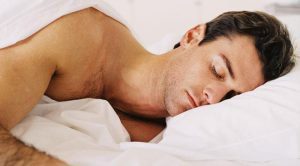US
Removing Technology from the Bedroom Improves Sleep
 Experts believe that popular technology prevents people from getting the optimal amount of sleep.
Experts believe that popular technology prevents people from getting the optimal amount of sleep.
In a study led by the New York Public Radio’s Sleep Data Project, participants were asked to remove all technology from their rooms and track their sleep. The informal study determined multiple facts about the quality of sleep in New York City, but it also linked technology with sleep.
Technology includes televisions, smartphones, and tablets. These devices, even when we think they are being quiet, are actually harmful to sleep. Clinical psychologist Michael J. Breus a doctor specializing in sleep, explains how technology is disruptive.
“Technology can interfere with a good night’s sleep in several ways. The biggest problem is these devices are often left on at night and emit light and noise that can disrupt sleep cycles and alter sleep-related hormone levels.”
Many Americans sleep with technology in their room. A poll by the National Sleep Foundation showed that 95% use technology within 1 hour of going to sleep. Additionally, 89% of Americans keep an electronic device in their bedrooms.
Another study, published in the Behavioral Sleep Medicine Journal, connected computer and mobile phone use with insomnia.
In the New York Public Radio Project, the majority of participants kept their electronics beside their bed where they can easily be reached. A small amount kept them under their pillow.
The presence of certain electronics, such as mobile telephones, are disruptive even when not active. A telephone that is not in sleep mode is regularly communicating with cell phone towers in order to receive a phone call. This communication gives off trace amounts of radiation, which also hampers sleep.
Turning the phone on airplane mode can prevent this communication from occurring.
Although placing the technology as far away from where sleep is occurring and not actively using it at least one hour before going to bed will help, experts suggest leaving it out of the room completely.
Dr. Breus advises, “If you use your phone as an alarm clock, consider switching to an ‘old school’ alarm clock with no digital lights. It will not be as disruptive to sleep.”






